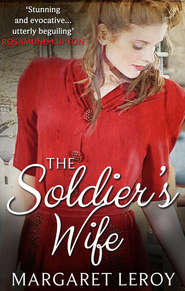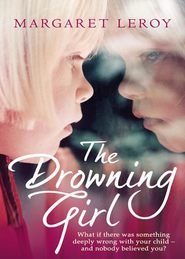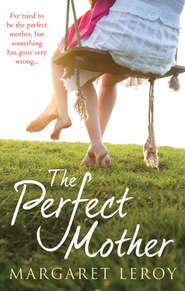По всем вопросам обращайтесь на: info@litportal.ru
(©) 2003-2024.
✖
The River House
Настройки чтения
Размер шрифта
Высота строк
Поля
The window is open, looking out over the gardens. I linger there for a moment, resting my arms. Nostalgia floods me. I’m eighteen again, walking a sepia corridor much like this one. Memories pass through me, a kaleidoscope of images. Men I went out with, tutors who scared me. The choir I used to sing in with Max, performing very old music in some chill college chapel: and afterwards there’d be a party where everyone got drunk because the medical students had doctored the punch with ethanol. I think of a tight black velvet dress I wore for one of those concerts, and, at the party afterwards, a stranger who came up behind me and ran his hands quite slowly down my sides, his palms curved into me, his fingers just missing my breasts. And I remember how I felt then that life was a quest or journey, a movement onwards towards some ultimate attainment: that at some point you’d get there, there’d be a kind of clarity. And here I am, years later: yet the present remains tentative, far too full of traffic jams and compromise: and the thing I thought I was moving towards continues to elude me.
I take the final suitcase to Molly’s room. There are urgent lists in my head, things I need to tell her: This is how your heater works, and if you leave your radio there on the window sill somebody could steal it, and promise you’ll take your vitamins. Amber is pinning Molly’s postcard collection to the pinboard.
Molly unpacks an alarm clock. It’s frivolously pink and was a present from a friend: she’s never used it.
‘I want to know you can set that thing,’ I tell her.
‘For God’s sake, Mum, I’ll manage.’
I insist. She tries, but it’s complicated.
‘I’ll be OK,’ she says. ‘I can set the alarm on my phone.’
‘But then you have to leave it on all night—and what if somebody rings and wakes you?’ My voice is shrill: all my anxiety about her focused onto this clock.
She puts her hand on my arm.
‘Mum, it’s OK. Really.’
She comes to the car park with us. It’s colder now.The wind stirs the leaves of the beech tree: the leaves are drying though they haven’t fallen yet, and there’s a rattle to the sound, a harshness that makes you think of winter. Behind us a girl with a sleek black bob is weeping as her parents’ car drives off. We stand there for a moment. Molly seems so small, suddenly. I put my arms all round her.
‘I’ll be fine, Mum,’ she says.
I realise I am utterly unprepared for this moment. I hold her for a moment and then she pulls away.
Amber wraps herself round her sister.
‘Go, girl,’ she says.
Greg gives Molly a rare hug. She holds him a little stiffly.
We get into the car and Molly turns and walks away. As we crunch out over the gravel, past the borders where the flower stalks are pale and fine as bones, I turn to watch her. She’s on the steps to the fire door, talking excitedly to the girl with the shiny bob, who a moment ago was crying and wanting her mother, and who is laughing now and flicking back her hair.
CHAPTER 8
We drive slowly out of the city, through heavy traffic. The car feels lighter without all Molly’s stuff in it.
‘I wonder how she’ll get on,’ I say to Greg.
‘Don’t worry, she’ll be fine,’ he says. ‘Molly always copes. Look, I don’t suppose you could dig me out a Milk of Magnesia, could you? I shouldn’t have had that crème brulée.’
There’s a packet he keeps in the glove compartment. I tip out a pill and hand it to him. The jasmine scent of Molly’s bath oil is still all over my hands. We have to wait for a long time at the roundabout on the ring road. I feel as if there’s something lurking just round the corner of my mind: some grief, skulking there, waiting to grab me.
Amber is hunting in her bag for her iPod.
‘It’s weird,’ she says. ‘You feel you haven’t said goodbye properly—that there’s something you should have said which you forgot to say.’
‘I feel the same,’ I tell her.
She takes out the iPod and chooses a song.
‘I’ll miss her,’ she says, her voice a little husky.
‘I know you will, sweetheart. We all will.’
She isn’t listening any more; she has her earphones in.
‘Greg, I’m worried Molly won’t wake in time in the mornings,’ I say. ‘I thought I’d send her our alarm clock—you know, just to tide her over till she can get to the shops.’
‘Ginnie, for God’s sake.’
‘She needs something.’
‘Well, so do I. I mean, what will wake me up?’ He turns slightly towards me; I smell the chalk on his breath.
‘You could use the alarm on your watch.’
‘OK, OK,’ he says wearily.
We drive through the Chilterns, through the swoop and dip of the downs. The sky is blue as ash. I can just hear the faint tinny sound of the music on Amber’s iPod.
‘I wonder what it will be like without her,’ I say.
‘Well, not so very different, I imagine.’
‘We could do more things together, I suppose.’
‘Such as?’
‘Oh, I don’t know. Perhaps we could go out a bit.’ My voice small, tentative. ‘You know, when Amber stays with her friends. Perhaps we could go away together or something.’
‘It’s a possibility,’ he says. ‘Though to be honest I’d welcome a bit more time to get this book together. Fenella’s very patient, but she’s starting to make noises.’
I think of Fenella, his literary agent: her Sloaney clothes—the pearls, the velvet Alice bands—her immaculate vowels and limitless self-assurance. I try to push away the irritation I feel.
‘But—I mean—things will be different now, won’t they? It’s a big change.’
‘Ginnie, we only left Molly half an hour ago.’
‘But we have to make it a positive thing. You know, a chance to do things differently…’
He’s quiet as though he’s thinking. I feel a flicker of hopefulness—that maybe he will agree.
‘There was one thing I thought of,’ he says. ‘I thought I might move into Molly’s bedroom. Just while she’s away. I’m sure we’d both sleep better. Would that be OK with you?’
‘Yes, of course,’ I say. ‘If you want to.’ This jolts me. I swallow hard. ‘I’d have to clear out her room first—it’s a total tip in there.’ Trying to be light about it. ‘But I was thinking more of maybe doing things together…’
‘Let’s not go rushing into anything,’ he says.









